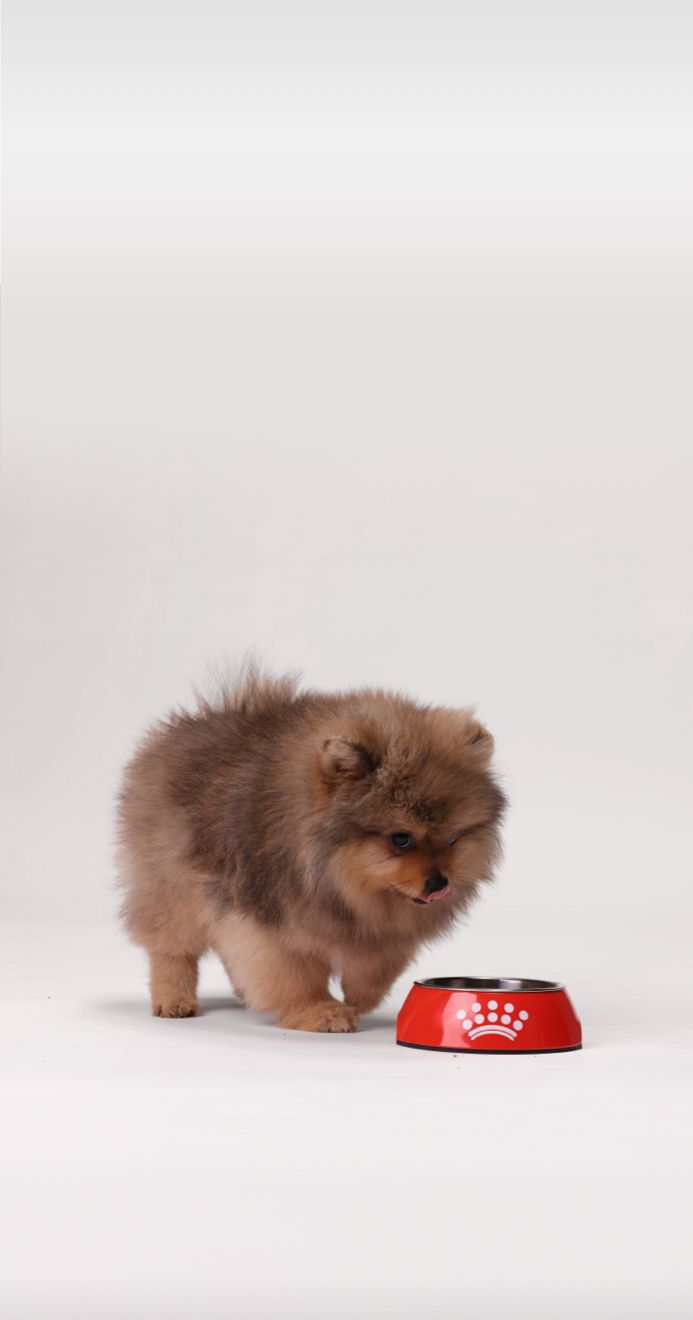How to take care of puppies
In the first months of life, puppies go through an amazing transformation. Taking care of their health and establishing healthy habits at this stage will help build the foundations for a healthy future.
Six tips for a healthy puppy
1. Learn to read your puppy’s body language and be aware of the signs indicating your puppy might be ill.
2. If you feel something isn’t right, or your puppy doesn’t seem their usual self, speak to your vet.
3. Make sure your puppy gets the right nutrition from a specialized, well-balanced puppy diet.
4. Give your puppy plenty of opportunities to sleep and rest quietly during the day, as well as at night.
5. Dogs enjoy company, so spend time with your puppy and remember to interact and play with them.
6. Always follow your vet’s recommended vaccination and deworming schedule.

Find the right product
Answer questions about your pet
Get a tailored recommendation
Unlock your pet’s health follow up
Build your puppy’s immunity with tailored nutrition
It's vital for your puppy's long-term health and well-being that they develop a strong immune system during the first months of life. Our formulas are scientifically developed to support their long-term healthy growth.
How to make the most of your puppy’s first visit to the vet
Once your puppy feels at home, it’s time for them to see the vet. There are important checks and treatments your vet needs to carry out, such as vaccinations and deworming.
These simple procedures will give your puppy the very best start to life.
Vaccinations and deworming
Further reading
Should I spay or neuter my puppy?
Spaying or neutering your puppy means you won’t be able to breed them. But it does offer a variety of health and behavioral benefits as well as preventing unwanted litters.
In male dogs, sterilization is called neutering and in female dogs it’s called spaying. Both involve your puppy being anesthetized and having a small operation by a vet.
The benefits of puppy neutering and spaying
Male dogs
- Reduced risk of testicular and anal gland tumors and prostate enlargement.
- Male dogs are less likely to mark their territory in your yard.
- Your male dog is less likely to roam, make urine markings, or be aggressive.
Female dogs
- Prevents mammary gland tumors.
- The symptoms of being in heat are removed or reduced.
Both
- Prevents sexually transmitted diseases.
- Female dogs are no longer attractive to male dogs.
- No unwanted litters.
Male dogs
- Reduced risk of testicular and anal gland tumors and prostate enlargement.
- Male dogs are less likely to mark their territory in your yard.
- Your male dog is less likely to roam, make urine markings, or be aggressive.
Female dogs
- Prevents mammary gland tumors.
- The symptoms of being in heat are removed or reduced.
Both
- Prevents sexually transmitted diseases.
- Female dogs are no longer attractive to male dogs.
- No unwanted litters.
When to have your puppy neutered or spayed
Changing your puppy’s diet after spay and neutering
After a puppy’s been neutered or spayed, they tend to gain weight more easily because they have a bigger appetite and are less active. Being overweight can cause various health problems, so it’s important to adjust your puppy’s diet.
Further reading
Common health issues for puppies
Knowing the common health issues your puppy might face, and the signs to look out for, can help you feel reassured and take better care of your puppy.
Common health issuesThe right nutrition to help your puppy stay healthy
Your puppy's diet is one of the most important factors in their long-term health and well-being. It influences everything from supporting their bones and immune system to their digestive comfort and coat health.
As your puppy grows towards adulthood and beyond, their nutritional needs will change – especially over the first year. To help give them the best chance in life, it's important you give them the right diet, in the right quantities for their age and individual needs.